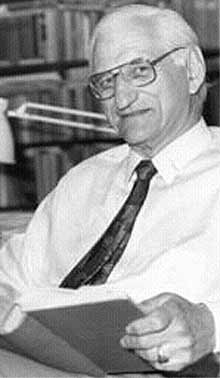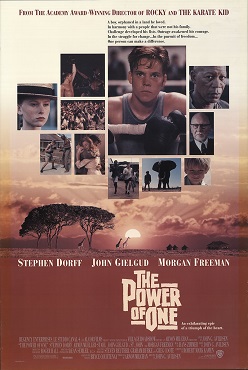Related Research Articles

Coloureds are multiracial people in South Africa, Namibia and to a lesser extent, Zimbabwe and Zambia. Their ancestry descends from the interracial marriages/interracial unions that occurred between Europeans, Africans and Asians. Interracial mixing in South Africa began in the Dutch Cape Colony in the 17th century when the Dutch men mixed with Khoi Khoi women, Bantu women and Asian female slaves and mixed race children were conceived. Eventually, interracial mixing occurred throughout South Africa and the rest of Southern Africa with various other European nationals such as the Portuguese, British, Germans, and Irish, who mixed with other African tribes which contributed to the growing number of mixed-race people, who would later be officially classified as Coloured by the apartheid government.

Pieter Willem Botha, was a South African politician. He was the head of government of South Africa from 1978 to 1989, serving as the last prime minister of South Africa from 1978 to 1984 and the first executive state president of South Africa from 1984 to 1989.

The National Party, also known as the Nationalist Party, was a political party in South Africa from 1914 to 1997, which was responsible for the implementation of apartheid rule. The party was an Afrikaner ethnic nationalist party, which initially promoted the interests of Afrikaners but later became a stalwart promoter and enactor of white supremacy, for which it is best known. It first became the governing party of the country in 1924. It merged with its rival, the South African Party (SAP), during the 1929-1939 Great Depression, and a splinter faction, the Re-United National Party became the official opposition during World War II and won power in 1948. With the National Party governing South Africa from 4 June 1948 until 9 May 1994, the country for the bulk of this time was only a de jure or partial democracy, as from 1958 onwards non-white people were barred from voting. In 1990, it began to style itself as simply a South African civic nationalist party, and after the fall of apartheid in 1994, attempted to become a moderate conservative one. The party's reputation was damaged irreparably by perpetrating apartheid, and it rebranded itself as the New National Party in 1997 before eventually dissolving in 2005.

The Afrikaner Broederbond (AB) or simply the Broederbond was an exclusively Afrikaner Calvinist and male secret society in South Africa dedicated to the advancement of the Afrikaner people. It was founded by H. J. Klopper, H. W. van der Merwe, D. H. C. du Plessis and the Rev. Jozua Naudé in 1918 as Jong Zuid Afrika until 1920, when it was renamed the Broederbond. Its influence within South African political and social life came to a climax with the 1948-1994 rule of the white supremacist National Party and its policy of apartheid, which was largely developed and implemented by Broederbond members. Between 1948 and 1994, many prominent figures of Afrikaner political, cultural, and religious life, including every leader of the South African government, were members of the Afrikaner Broederbond.

The cinema of South Africa refers to the films and film industry of South Africa. Films have been made in English and Afrikaans. Many foreign films have been produced about South Africa, including many involving race relations.

The Tricameral Parliament, officially the Parliament of the Republic of South Africa, was the legislature of South Africa between 1984 and 1994, established by the South African Constitution of 1983, which gave a limited political voice to the country's Coloured and Indian population groups. The majority African population group was however still excluded, their interests notionally represented in the governments of the black homelands, or "bantustans", of which they were formally citizens. As the bantustans were largely politically impotent, its principal effect was to further entrench the political power of the White section of the South African population.
Riku Lätti is a South African singer, songwriter, and writer. After matriculation in 1991 at Hoërskool Florida, Johannesburg, he studied philosophy at the University of the Witwatersrand where he finished his honors degree. He changed his name to Victor S. Wolf and claimed that Riku Lattii was "dead." Since then he composed the complete film score for Jans Rautenbach's film "Abraham", on which he was credited as Riku Lätti, thereby being effectively resurrected.

South African literature is the literature of South Africa, which has 11 national languages: Afrikaans, English, Zulu, Xhosa, Sotho, Pedi, Tswana, Venda, Swazi, Tsonga and Ndebele.

Johan Adam Heyns (1928–1994) was an Afrikaner Calvinist theologian and moderator of the general synod of the Nederduits Gereformeerde Kerk (NGK) in South Africa. He was assassinated at his home in Waterkloof Ridge, Pretoria.
Afrikaans literature is literature written in Afrikaans. Afrikaans is the daughter language of 17th-century Dutch and is spoken by the majority of people in the Western Cape of South Africa and among Afrikaners and Coloured South Africans in other parts of South Africa, Namibia, Zimbabwe, Botswana, Lesotho and Eswatini. Afrikaans was historically one of the two official languages of South Africa, the other being English, but it currently shares the status of an "official language" with ten other languages.
Paljas is a 1997 Afrikaans language South African film. Paljas was written by Chris Barnard and directed by Katinka Heyns. It is based on the book of the same name.

Natalia Da Rocha is a South African actress, director, youth activist and businesswoman. She can be remembered as being one of the few persons of colour to appear in entertainment media during the Apartheid-era. In 1981 she was the first Coloured to graduate with a Drama degree from the Afrikaans dominant Stellenbosch University. Beginning 1987 she was the first woman of colour along with Sam Marais to star in a Sun City Extravaganza. In 1992, she became the first South African star to perform publicly in Madagascar. She is well remembered for her roles in musicals such as Ain't Misbehavin'; Midnight Blues; Godspell and Vere . Natalia was one of 40 inducted into the S.A. Legends Museum on 26 January 2020 in Johannesburg.

The Power of One is a 1992 drama film directed and edited by John G. Avildsen, loosely based on Bryce Courtenay's 1989 novel of the same title. The film stars Stephen Dorff, John Gielgud, Morgan Freeman, Armin Mueller-Stahl, and Daniel Craig in his feature film debut.
Wild Season is a 1967 South African drama film directed by Emil Nofal and starring Gert Van den Bergh, Marie Du Toit and Antony Thomas. A family operating a trawler off the South African coast, suffers numerous personal tragedies.
Jans Rautenbach was a South African screenwriter, film producer and director. His 1968 film Die Kandidaat proved controversial and received some censorship in South Africa, because of perceived criticism of the apartheid system. His last film, Abraham, was a hit at the South African box office.
Jannie totsiens is a 1970 South African psychological horror film directed by Jans Rautenbach and starring Cobus Rossouw, Katinka Heyns, Jill Kirkland and Don Leonard. A new arrival to a mental institute is ostracised by the other patients, until they use him as a scapegoat when another patient dies. It has been viewed as representing an allegory of South African society at the time.
My Way is a 1972 South African drama film directed by Emil Nofal and Roy Sargeant and starring Joe Stewardson, Richard Loring, Marie Du Toit and Tony Jay. It was followed by a sequel My Way II in 1977.
Reza de Wet was a South African playwright known for her significant contributions to South African theatre.
Katinka Heyns is a South African actress, director and filmmaker in the South African film industry. She is known for including feminist perspectives in her films, as well as for commenting on South African politics and culture. Her work includes the film Paljas which was selected as the South African entry, but eventually not nominated for Best Foreign Language Film at the 70th Academy Awards.
Die Storie van Klara Viljee, is a 1992 South African drama film directed by Katinka Heyns and produced by Chris Barnard for Sonneblom Films. The film stars Anna-Mart van der Merwe in the lead role along with Regardt van den Bergh, Hennie Oosthuizen and Trix Pienaar in supporting roles.
References
- ↑ Katrina (1969), British Film Institute
- 1 2 3 4 Botha 2013, p. 64.
- 1 2 3 4 Katrina (South Africa 1969) , retrieved 1 April 2023[ non-primary source needed ]
- 1 2 3 4 Munger, Ned (December 1969). "ARTS: REVIEW OF SOUTH AFRICAN FILM". Africa Report. 14 (8): 31. ProQuest 1304056613.
- ↑ Tomaselli 2013, p. 41.